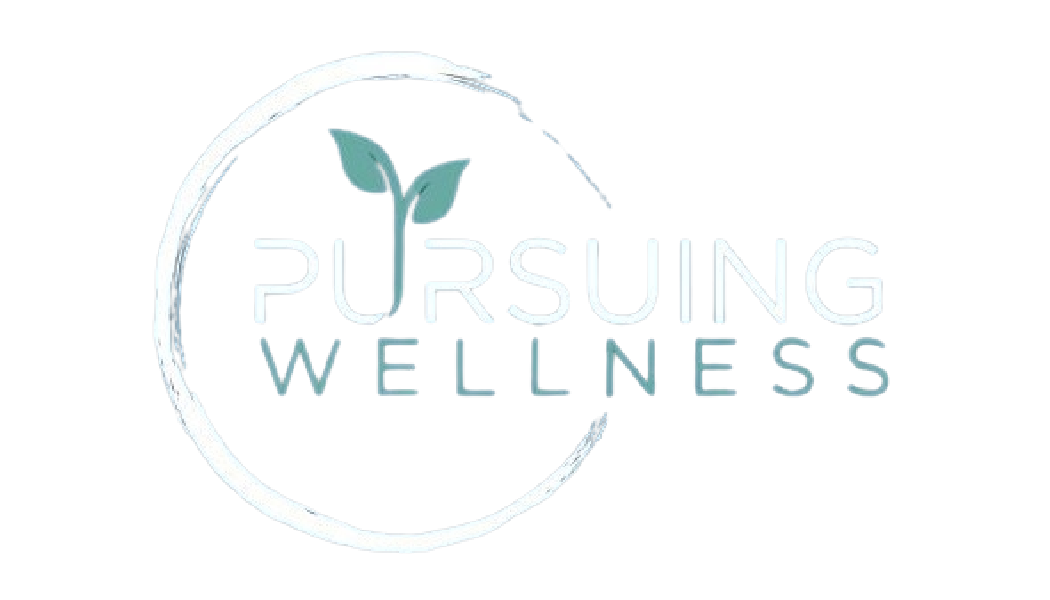Mindfulness in Motion: Stress Awareness & Self-Care
March is both National Nutrition Month and Stress Awareness Month, making it the perfect time to reflect on how our daily habits impact our mental, emotional, and physical well-being. Stress is an unavoidable part of life, but how we manage it determines its effect on our health. At Pursuing Wellness, we believe in a holistic approach—one that integrates mindfulness, movement, and nutrition to create a balanced lifestyle.
In this blog, we’ll explore how stress affects the body, practical ways to manage it, and how mindfulness, yoga, breathwork, and nutrition can support overall well-being.
The Hidden Impact of Stress on Your Body and Mind
Stress is more than just an emotional response—it triggers physical reactions in the body. Chronic stress can lead to:
• Increased levels of cortisol (the stress hormone), which contributes to inflammation and weight gain
• Poor digestion and gut health issues
• Muscle tension, headaches, and fatigue
• Sleep disturbances and trouble focusing
• A weakened immune system, making the body more susceptible to illness
The good news? You can reverse these effects by implementing mindful strategies that help the nervous system shift from a stressed state (fight-or-flight) to a relaxed state (rest-and-digest).
Mindfulness in Motion: Simple Strategies to Reduce Stress
Daily Mindful Movement: Yoga, Walking, or Stretching
Movement isn’t just for fitness—it’s a powerful way to regulate emotions. Engaging in gentle, intentional movement helps release tension and lower cortisol.
Try 5-10 minutes of yoga in the morning to set a calm tone for the day.
Incorporate a mindful walk outdoors, focusing on your breath and surroundings.
Stretch before bed to help your body transition into a restful state.
Breathing exercises help activate the parasympathetic nervous system, which signals the body to relax. Try this simple technique:
4-7-8 Breathing: Inhale for 4 seconds, hold for 7 seconds, and exhale slowly for 8 seconds. Repeat 4-5 times to feel an immediate sense of calm.
The Role of Nutrition in Stress Management
What you eat affects how you feel. Certain foods increase inflammation and stress in the body, while others help regulate mood and energy levels.
Eat More: Whole, nutrient-dense foods like leafy greens, nuts, seeds, berries, and lean proteins to support brain function and reduce stress.
Reduce: Highly processed foods, excessive caffeine, and sugar, which can spike cortisol and lead to energy crashes.
Stay Hydrated: Dehydration increases stress on the body. Aim for half your body weight in ounces of water daily.
Mindful Moments: Small Practices with Big Impact
Stress relief doesn’t have to take hours—small, intentional practices throughout the day can make a big difference.
Start your morning with gratitude (write 3 things you’re thankful for).
Pause for a body scan—notice where tension sits and consciously relax those areas.
Take mindful breaks during the workday to reset your mind and refocus.
How Pursuing Wellness Can Support Your Stress-Relief Journey
At Pursuing Wellness, we integrate therapy, coaching, yoga, and mindfulness to help individuals build healthier, more balanced lives. Whether you’re looking for individual therapy, life coaching, or holistic wellness sessions, we’re here to support your journey toward reducing stress and improving overall well-being.
Take the Next Step
Join our Monthly Wellness Check-In to assess your current stress levels and set personalized wellness goals.
Book a session (therapy, coaching, or yoga) to deepen your self-care practices.
Follow us on social media for daily wellness tips and upcoming events.
Let’s make March the month we take intentional steps toward calm, clarity, and confidence in our daily lives.

